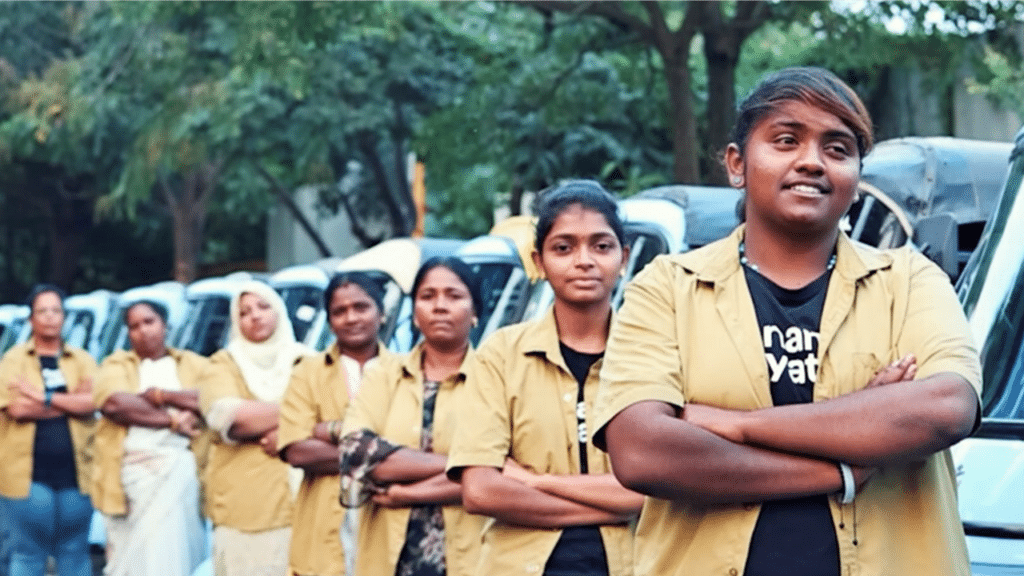
Moving towards a low-carbon and just future requires a transformation of our transport and mobility systems that cannot go on without a feminist approach, as feminism is an indispensable part of sustainable mobility. A feminist transport system works for everyone and is an important driver for the realisation of gender equality, as it can determine access to essential services like health care, education, employment, as well as social and political life.
Gender equity in transport and mobility is not a niche issue. Women and gender minorities worldwide face similar barriers upheld by persisting structures that have shaped our cities and transport systems. Additionally, knowledge and best practices on gender and mobility are scattered and the gender data gap persists. While more and more institutions and initiatives share the goal of ensuring gender equity in transport and mobility, it is difficult to keep up with all the exciting developments of measures and initiatives. Smaller regional and local organisations in particular lack valuable visibility on the global stage.
This year’s Transport and Climate Change Week session “Towards Gender Transformative Transport Systems: Leveraging Networks for Action” highlighted how feminist and gender-transformative urban mobility systems and networks are a powerful catalyst for decarbonising transport and creating a more inclusive and integrated transport system and society for all. This flagship event on sustainable transport provides an opportunity to continue the discussion on feminism in the sector, delving into projects and initiatives for gender equity.
The Deutsche Gesellschaft für internationale Zusammenarbeit (GIZ) strengthens the change towards inclusive mobility by fostering female-led transport reforms and promoting greater participation of women in the sector through its project work. A prime example is “La Rolita,” a public transportation operator in Colombia that is transforming Bogotá’s transport landscape. With a workforce that is 55 % female, “La Rolita” operates a fleet of 195 electric buses, showcasing how gender equity and sustainability can go hand in hand. The operator actively encourages women to pursue education and careers in transport, with a focus on strengthening recruitment in technical roles. By empowering women and championing gender equality, “La Rolita” demonstrates how advancing emission reduction targets can be seamlessly integrated with inclusive and equitable practices in the transport sector.
Key strategies to increase female representation in the transport industry include targeted training programmes and early-career support initiatives. The “Women on the Move Asia Mentorship Programme,” is one of these initiatives, a year-long, online mentorship programme designed to connect women across Asia, who share common goals and interests in the transport sector. The mentorship aims to create an inclusive and supportive environment where women working in, aspiring to enter, or passionate about the transport field can build meaningful connections and exchange knowledge. Moreover, the initiative encourages partnerships to extend beyond the mentorship period, fostering lasting networks and increasing women’s visibility within the industry.
To fully leverage the potential of women represented in transport initiatives, the networks Women In Motion (Mujeres en Movimiento), Women Mobilize Women and Women on the Move founded the Global Alliance for Feminist Transport, aiming to connect and empower organisations, networks and individuals working towards gender-equitable transport systems worldwide. Their shared vision is to be the leading voice on feminist sustainable transport by shining a light on who, how and what is moving our cities towards greater gender equity in transport and mobility.
TUMI is the leading global implementation initiative on sustainable mobility formed through the union of 11 prestigious partners. We are united in one goal: changing mobility for the benefit of people and the environment, with a view to the future. With TUMI, the German Federal Ministry for Economic Cooperation and Development (BMZ) is supporting climate-friendly, inclusive, safe and affordable Mobility in cities. TUMI is funded by BMZ and implemented by GIZ in collaboration with all TUMI partners.
NDC Transport Initiative for Asia (NDC-TIA) is part of the International Climate Initiative (IKI). The German Federal Ministry for Economic Affairs and Climate Action (BMWK) supports this initiative on the basis of a decision adopted by the German Bundestag. It supports China, India, and Viet Nam as well as regional and global decarbonisation strategies to increase the ambition around low-carbon transport.
 Women working as drivers via the open mobility app Namma Yatri | © Namma Yatri
Women working as drivers via the open mobility app Namma Yatri | © Namma Yatri

Anneli Stutz
anneli.stutz@giz.de
Visit profile

Mariana Galvez Vasquez
mariana.galvezvasquez@giz.de
Visit profile